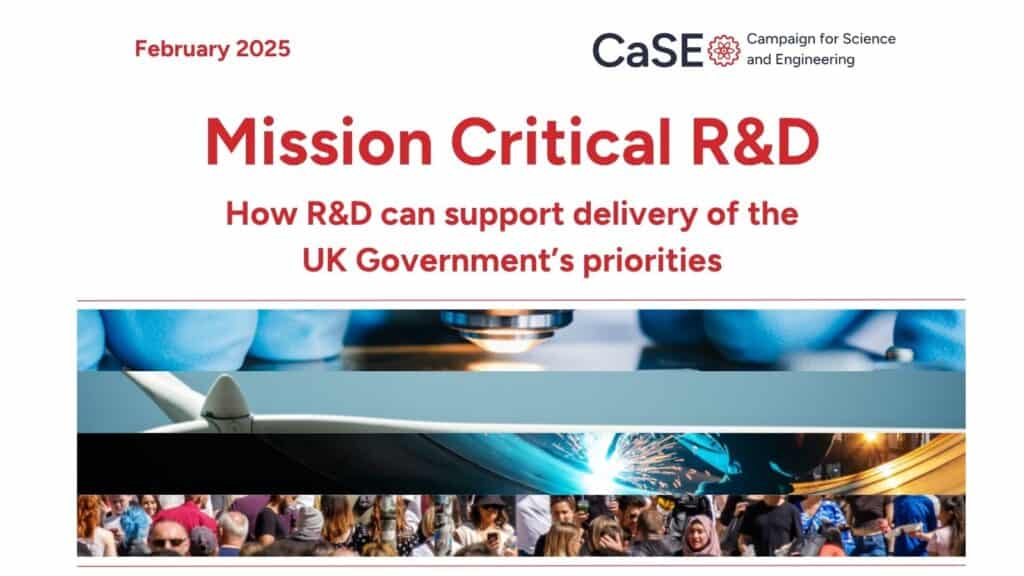Reflections from CaSE Chair, Graeme Reid, on a BEIS stakeholder event and the latest high level forum on Science and Brexit
Meeting Ministers … and more
23 Jun 2017
Business Secretary Greg Clark and his Ministerial team met stakeholders from science and industry on 21 June at an event hosted by CaSE member Imperial College. Science and Universities Minister Jo Johnson was there. I represented CaSE.
Industrial strategy
Clark’s plans for the future demonstrate continuity. The industrial strategy consultation attracted nearly 2000 responses and while he was careful not to promise a White Paper, we should expect more detailed plans for the strategy to appear in one form or another. These plans are likely to give more emphasis to regional and local issues but regional science and innovation audits – which received so much attention during the last year – were not mentioned.
R&D investment
The £2bn pa increase in science and innovation funding announced last autumn gets a high profile in Clark’s narrative but there was no word of the manifesto commitment to raise R&D spending to 2.4% of GDP as a step towards a 3% aspiration. Nor was there any mention of incentives to stimulate more business investment in R&D: surely essential if overall levels of research in this country are going to get closer to that in Germany and the USA. We should expect the increased research funding to bring science and engineering research even closer to industrial development. That is no surprise. But Clark was uncharacteristically blunt in his criticism of the Conservative Party’s election campaign, saying how disappointed he was that business and the economy had such a low profile.
Brexit
Earlier that day, I represented CaSE at the first meeting since the election of the Government’s high level forum on science and Brexit, chaired by Jo Johnson. That forum has not broken its stride and continues to feed views from the science and engineering community directly into the Ministerial team.
Formal Brexit negotiations began a couple of days earlier. While the initial meeting seems to have been largely ceremonial, it did provide clarity on the early topics for negotiation and gave some insight into the negotiating process.
There have also been widespread signals of a more pragmatic approach to the UK’s negotiating stance. Thankfully, the rights of EU citizens living in the UK is one of the first topics for negotiation. A working group has been created to negotiate the details. We need the earliest possible reassurance for the many EU nationals holding such roles in universities, research institutes and businesses in the UK. A combination of priority and pragmatism is exactly what we need.
We also learned the names of senior officials who will do much of the practical negotiations.
Philip Rycroft, now Second Permanent Secretary at the Brexit Department and a key member of the civil service team, was previously Director General for Innovation and Enterprise at the Business Department. His experience of the science and innovation landscape will be invaluable.
Related resources

CaSE takes a look at the details of the DSIT 2025/26 spending allocations, including UKRI.

Analysis and highlights from CaSE’s research into public attitudes towards R&D and the Government’s missions.

This report sets out evidence on the integral role of R&D in driving progress on the UK Government’s missions.

In this submission we set out the views and policy recommendations of CaSE on increasing public investment in R&D, supporting regional economic growth, and ensuring the sustainability of the R&D system.